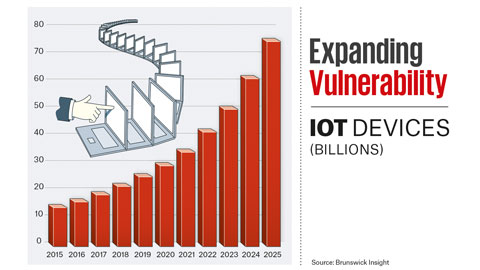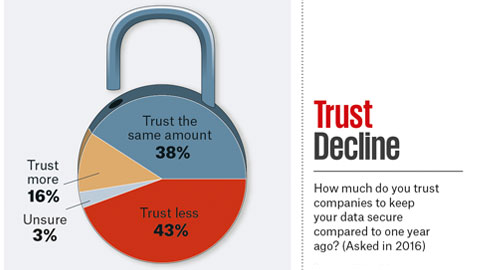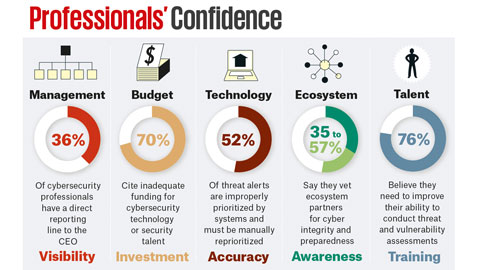The Middle East is a cybersecurity hotspot. DarkMatter Founder Faisal al Bannai tells the Brunswick Review about his firm's fresh approach
The open digital environment of the internet is widely viewed as anarchic, dangerous and confusing, a place former US National Security Agency and CIA Director Michael Hayden once referred to as a “global free-fire zone.” It is easy to feel overwhelmed and outgunned by tenacious and ingenious adversaries – criminals, hacktivists and even nation states. That wildness is set to increase dramatically.
The fourth industrial revolution is well under way. In 2017, the Internet of Things harbored approximately 18 billion connected devices; the total is expected to stand at 75 billion by 2025, a fourfold increase. Keeping pace with that growth, new cyber threats have emerged for consumers, businesses and financial institutions around the world.
To meet these challenges, the cybersecurity industry as a whole is also changing. New companies such as DarkMatter have emerged to find solutions to the evolving threats. As a younger company, DarkMatter approaches the problems from a more holistic perspective.
“I feel the industry’s current approach to cybersecurity has been overly reliant on perimeter security and reaction to threats,” says DarkMatter Founder and Managing Director Faisal Al Bannai. “This has ironically left entities more vulnerable to attack. Companies are investing in the equivalent of a Maginot Line when what we need is to encourage the use of evolving ecosystems designed to respond to the relevant attack.
“Walls haven’t worked as defensive measures. That is very clear. Our aim is to help organizations become cyber resilient.”
Founded in 2014 and based in Abu Dhabi, DarkMatter naturally sees cybersecurity with a greater urgency than companies in the West. The Middle East has seen explosive growth in its digital economy, a boom that has exposed it to a rash of cyber attacks. Fast-growing benefits and equally fast-growing threats are prompting innovative ways of weaving cyber defenses and awareness more closely and effectively into a company’s DNA.
“Many locals from the emirates have grown up in a relatively safe environment but now face a situation where multiple threats are emerging online,” Mr. Al Bannai says. “That’s where the need for companies like DarkMatter and our concept of cyber resilience have grown from. Cyber resilience can mean having the ability to not only recover quickly from cyber attacks, but to end up stronger.”
In addition to its own advisory services DarkMatter recently debuted its first product: Katim (“silence” in Arabic) is a smartphone that the company claims is the most secure mobile device made, and it markets the phone to governments and businesses in the banking sector and the oil and gas industry. The Katim is outfitted with a custom operating system, and mobile device management and productivity apps.



